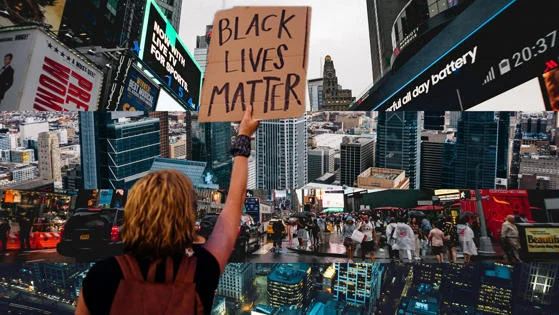How can we end the War on Drugs?

Contents
"Decades ago, the Thai royal family effectively decided that illicit drug production was a long-term policy development issue, and that they would therefore treat it as such. They would not just go in and eradicate crops unless there were alternatives for those communities to live off, and they have seen the benefits of that policy."
Dr John Collins, founding Executive Director of LSE's International Drug Policy Unit (IDPU), is explaining why the Drugs and Development Hub (DDH) focuses on the work of its partner, the Mae Fah Luang Foundation, and why Thailand is often seen as a success story in development and drug policy. While northern areas of Thailand used to be a significant opium growing and trafficking region, he says, decades of government intervention has effectively shifted those communities and their economies away from a reliance on illicit crops.
"Now there are a lot of reasons why you can’t just replicate or transfer that experience to say Colombia," Dr Collins cautions. "Thailand is much smaller, the cultivation areas were much more constrained, they had support of the Royal family etc, but it is a good example of effective policy and there are of course lessons we can learn from that."
Providing a platform
Creating the environment to enable such lessons to be learnt is one of the aims of the DDH, which launched in January 2020 at an event hosted by the Centre for the Study of Security and Drugs (CESED) at the Universidad de Los Andes in Bogota, Colombia. Led by the IDPU, in collaboration with the Global Partnership on Drug Policies and Development and the Global Initiative Against Transnational Organised Crime, the Hub provides a platform to enable policymakers and practitioners across a range of disciplines to forge connections and learn from each other.
"There is currently quite a siloed approach to international drug policy," Dr Collins says. "You have certain actors that focus specifically on drugs, or specifically on crime or development and there's not really a platform to enable cross-cutting discussions where these fields meet."
The DDH aims to change this. "There are a lot of institutional hurdles to creating these collaborative or inter-institutional discussions" Dr Collins explains. "It’s not necessarily through a desire not to engage, but there are institutional set ups which push back against any meaningful collaboration. We’re aiming to bring people together in ways that will encourage these networks and develop the discussions that we feel are currently missing."
Drugs, like poverty, like hunger, is a long-term sustainable development issue.

Our aim is to create a network that ultimately has the critical capacity to sustain itself.
A public health issue should not be a fight
Approaching drug policy from a social development perspective is hugely important, argues Dr Collins. While rhetoric is often still focused around being tough on drug sellers and consumers, however, he does see movement away from drugs being viewed as purely a criminal justice issue. He hopes that the DDH will encourage this move away from a primarily punitive approach.
"We’ve lived in this post-truth bubble for a very long time in drug policy," he says. "We don’t seem to learn from our past mistakes or successes, we want to continue to repeat policy based on ideology or preconceptions of what should work.
"There are noticeable changes though. We are coming out of an era which was extremely conservative with a strict view on drug control which prevented the ideas of development, human rights and public health from impeding on what they saw as something that, effectively, required a militarised and criminal justice-oriented response.
"While I would like to say we’re seeing a complete shift away from the repressive model I think what we’re instead seeing is probably more of a policy pluralism emerge. That’s encouraging in some areas, because there is a greater recognition that public health and human rights have a very important role in drug policy. However, you only have to look at other places such as Russia or the Philippines to find a very different, deeply repressive and very deadly approach still ongoing.
"We feel that the DDH is the kind of forum that can help accelerate positive changes towards a public health approach and help us drive them forward better."
A pioneering partnership
The IDPU has been working with the CESED at the University de los Andes for around six years. Given this relationship, as well as Colombia’s role in international drug policy, Bogotá was the natural place to launch the DDH and hold its first international conference. The event brought together 40 people from 14 countries.
Since its launch, the DDH has also hosted an event at the UN Commission on Narcotic Drugs with the UN Office of Drugs and Crimes, and is now looking towards future international workshops in Asia and Africa.
"Our aim is to create a network that ultimately has the critical capacity to sustain itself" Dr Collins says. "As a result of the Colombian meeting we’re bringing together a group of experts for a special issue of the LSE Journal of Illicit Economies and Development (JIED), but that is just one example, there are a number of parallel and interlinked discussions already happening around this."
"To refer back to Thailand, what their success shows us, perhaps most of all, is that while short term fixes might seem like a good idea, they don’t often work. That’s why we’ve focused our initiative to view it as the sustainable development issue. Drugs, like poverty, like hunger, is a long-term sustainable development issue. If we can start to view drug policy as something that requires time and effort, and create the space to enable these discussions, then perhaps we will be able to create positive change for the future."
This film and LSE IQ episode can also be watched/listened to on LSE Player.
John Collins was speaking to Jess Winterstein, Deputy Head of Media Relations at LSE.
Image: Javier-Canada/Unsplash.
The Drugs and Development Hub launched in 2020 as an initiative between LSE’s International Drug Policy Unit (IDPU), the GIZ Global Partnership on Drugs Policies and Development (GPDPD) and the Global Initiative on Transnational Organized Crime (GITOC).
Reports by the International Drug Policy Unit (IDPU)
- Governing the Global Drug Wars (2012)
- Ending the Drug Wars (2014)
- After the Drug Wars (2016)
- The IDPU also publishes a peer-reviewed, open access, electronic journal, The Journal of Illicit Economies and Development (JIED).
Download a PDF version of this article




